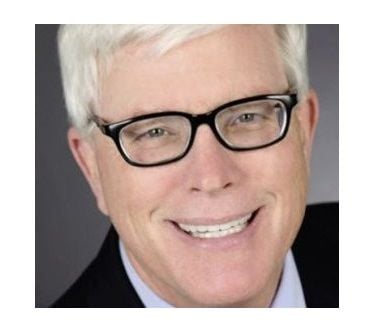
There's a new book out this week about the first O'Brien, and it is the unlikeliest riveting read of the year: "In Hoffa's Shadow".
(Buy the book by clicking here or order in KINDLE edition at a 46% discount by clicking here. Sales help fund JWR.)
Its author is Jack Goldsmith - Harvard Law professor, national security law maven and former assistant attorney general for the Office of Legal Counsel. It was Goldsmith who, while in the last role, played Samson in the temple to the Stellarwind surveillance program and its demise during the George W. Bush administration.
The tale of Stellarwind is a story within a story in "In Hoffa's Shadow." There's also another story in the book: that of Robert Kennedy, one of my childhood idols. It is a not-flattering-at-all, detailed history of Kennedy and J. Edgar Hoover's abuse of surveillance procedures in the former's almost maniacal pursuit of labor leader Jimmy Hoffa.
The book is primarily focused on Hoffa, a character who exists dimly in the memory of children growing up in the 1960s. He has always been a slightly (or more than slightly) sinister figure, in part because of his subtle relationship with "the Outfit," or La Cosa Nostra, as Goldsmith frequently refers to them, and largely because he simply disappeared one day in the Detroit area, the presumed victim of organized crime figures he had crossed as he emerged from prison angry at having been ousted from the leadership of the Teamsters Union that he had brought to a pinnacle of union power in the 1950s and 1960s.
Chuckie O'Brien was a surrogate son to Hoffa for decades. Until he wasn't. Then he became a prime suspect in the disappearance of the square-jawed, always combative but in the year of his disappearance dethroned union leader. That path, from penniless street kid to the pinnacle of American labor then to prison and a never-written ending, became a subject of Goldsmith's book.
Why is this large figure in American labor history of such interest to the Harvard don? Did the professor's studies of criminal procedure as it relates to his national security state specialty take him down an interesting and, these days, abandoned road?
Turns out Chuckie O'Brien is Goldsmith's stepfather. Turns out that Jack Goldsmith was once Jack O'Brien until, as an adult, Goldsmith shed the name of his stepfather. Turns out, as well, that this brilliant mind of the American Bar is also deeply steeped in the history and operations of the Mafia.
I was prepared to be informed by Goldsmith. He's always worth reading on any topic on which he opines. But I wasn't prepared to be transfixed by a D.C. "backstory" unlike any out there. Goldsmith's journey from adoring stepson to embarrassed college and law student to striving young lawyer to mature adult aware of Chuckie's very good and very compromised parts is part of this tale, and Goldsmith candidly tells it without overweighting its importance to the larger narrative about Hoffa. Chuckie O'Brien's story is similarly a huge central plank in the deck of the Hoffa drama, but not the only one - and far from even the most necessary one. This book is about Hoffa, no matter how many fascinating subplots there are, and you should be prepared to be surprised about the man.
Though Hoffa was undeniably and thoroughly corrupt, in varied, deep and powerful ways, he was also very much a tribune of organized labor. Still, he was comfortable dealing with organized crime when it helped his union, and his side deals - Goldsmith recounts Hoffa's pivotal role in financing early Las Vegas - enriched him in ways that remain shocking.
But his ruthlessness was matched by Kennedy's, and once in prison and out of power, Hoffa grew bitter. Through Chuckie O'Brien's and Goldsmith's eyes, there's an opportunity for some empathy and a lot of astonishment. This is a National Book Award nominee waiting to happen. And though Hoffa did not go gently into the night, his abrupt and final exit is as dark as any tragedy.
And then Goldsmith's personal history came to be intertwined with the United States' history post-9/11. It's hard to overstate how unlikely this story is, and similarly difficult to overestimate my certainty that readers from all backgrounds and across entire political and economic spectra won't be able to put it down.
(Buy the book by clicking here or order in KINDLE edition at a 46% discount by clicking here. Sales help fund JWR.)
Sign up for the daily JWR update. It's free. Just click here.
(COMMENT, BELOW)


 Contact The Editor
Contact The Editor
 Articles By This Author
Articles By This Author